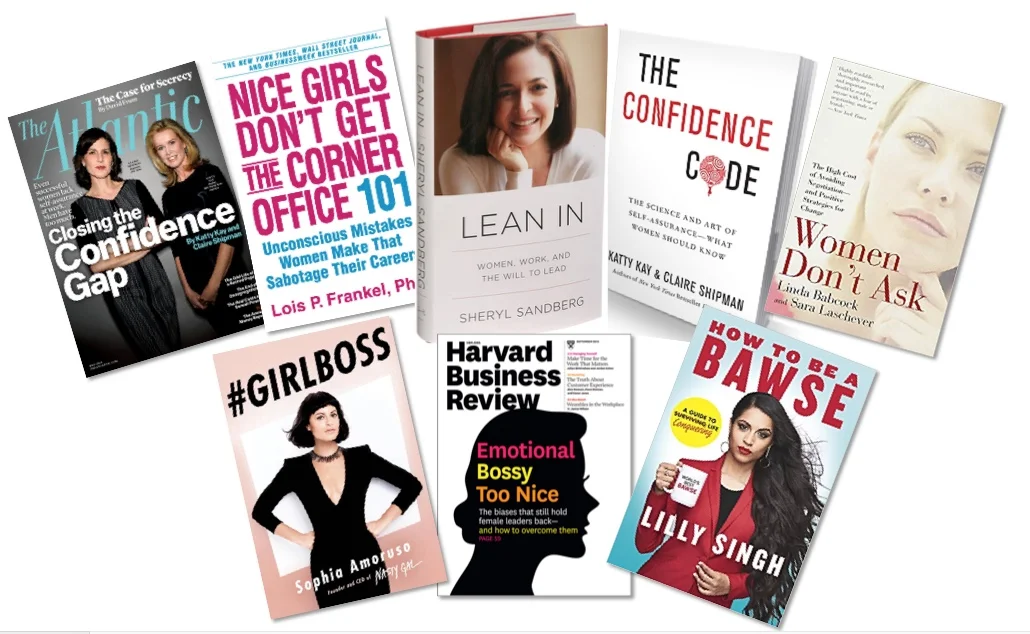The National Disability Insurance Scheme’s coordinating agency didn’t predict one factor about its participants — and hoped it would solve itself over time. That’s unlikely, say researchers Eleanor Malbon and Gemma Carey, who have been watching how outsourcing is remoulding the agency.
Read MoreWomen’s lack of progression in the workplace and the gender pay gap is often blamed on women; women are told that behaving more confidently will result in workplace rewards. Today’s blog by Leonora Risse (@leonora_risse) of RMIT University reports on an Australian study that challenges this advice, and suggests that organisations would be better off valuing the characteristics that women bring, rather than expecting them to become more like men. This policy analysis piece was originally presented at the inaugural Australian Gender Economics Workshop, held in Fremantle, Western Australia, on 8 and 9 February, 2018.
Read MorePublic sector innovation (PSI) units have spread rapidly across government departments in Australia and New Zealand in recent years, and an ANZSOG-funded research project is providing the first analysis of their structures and operations. The project's first report features results from a survey of 52 PSI units and teams, conducted this year by Dr Michael McGann, Professor Jenny Lewis, and Dr Emma Blomkamp, from Melbourne University’s Policy Lab.
Read MoreIf you work for a social enterprise, youth organisation, health organisation or government, you are invited to participate in the ‘NSW Social Enterprise and Well-being for Young People Workshop’ hosted by the Centre for Social Impact in partnership with Vic Health, the Foundation for Young Australians and Social Traders.
Read MoreMeagan Lawson, CEO for Council on the Ageing (COTA) NSW, recently gave evidence to the Senate Select Committee Inquiry on the Future of Work and Workers – this is an edited version of her opening statement. This address speaks to the multitude of barriers that push older people out of the paid workforce and calls for a stronger focus on addressing the workplace structures that maintain these barriers, namely age discrimination and insufficient workplace flexibility.
Read MoreIn his article for The Mandarin, David Donaldson reports on an inquiry into social impact investment (SII) for housing and homelessness, led by the Centre for Social for Impact. This inquiry, which was prepared for the Australian Housing and Urban Research Institute, addresses three key questions:
What is SII and how can it be applied to housing and homelessness policy in Australia?
What are the actual, potential and perceived opportunities, risks and/or barriers of SII for housing and homelessness policy in Australia?
How can SII be applied to housing policy in the Australian context?
What does the 2018-19 Budget mean for society? Is this budget creating the Australia we want? This piece summarises the Centre For Social Impact's response to last week's budget release. The Centre for Social Impact is a collaboration between the University of New South Wales Sydney, the University of Western Australia and Swinburne University of Technology, with the purpose to catalyse social change. According to the Centre's Chief Executive Officer, Professor Kristy Muir, the budget does not do enough to support the most disadvantaged or to address key social issues.
Read MoreWhile planning their own Mothers’ Day celebrations in lieu of the absent fathers, Emily Wolfinger (@Ewolfi10) and Juanita McLaren (@defrostedlady) of Good Shepherd Australia New Zealand reflect on the devaluing of caring work in social policy and its implications for women parenting alone.
Read MoreThis is an edited repost originally published by the Australian Jewish Democratic Society (AJDS) on 16 March 2018 on their blog and in Just Voices (issue 15, 2018). It is based on presentation given by Clare Land at an event in Melbourne on 4 September 2016, “Decolonisation Forum: From Australia to Israel-Palestine”, organised by AJDS.
Dr Clare Land @Clare_Land is a non-Aboriginal activist and researcher who has been involved in supporting Aboriginal land rights struggles in southeast Australia since 1998. Her book Decolonizing Solidarity: Dilemmas and directions for supporters of Indigenous struggles is a comprehensive resource about the ways non-Indigenous people can work in solidarity with Aboriginal aspirations today.
Read MoreThe Federal Budget is being handed down today. No document is a more authentic signal of political commitment than that which allocates funds. In today’s analysis Hannah Gissane (@HannahGissane) of the Equality Rights Alliance walks us through the gendered nature of Australia’s unhealthy housing policies, what they say about Government commitment to addressing gender inequality, and how housing policy could be fixed to support women out of poverty.
Read MoreEconomics is the organising frame for almost every policy decision made by government, and the lack of gender and other forms of diversity in economics is suppressing alternative views on what effective policy looks like. In today’s analysis, Danielle Wood (@danielleiwood) of Grattan Institute provides an analysis of the poor female representation in Australian economics, how this negatively impacts on decisions, and what can be done to address the situation. Danielle is also the Chair of the Women in Economics Network.
Read MoreIn this piece, Pauline Zardo uses an analysis of The Conversation Annual Survey to consider what influences policy decision-makers' use of research. Increasing access to research is the key. Pauline's piece was first published on the LSE Impact Blog.
Read MoreIn this piece, Social Policy Whisperer Paul Smyth reflects on inclusive and sustainable development, and asks the question of whether social policy can provide a unifying framework for a range of disparate social and environmental issues.
Read MoreIn this piece, UK-based social affairs journalist Saba Salman (@Saba_Salman) considers what a truly accessible city would look like and explores some innovations currently underway to create such a city into the future. This piece is a re-post from Saba's blog, The Social Issue.
Read MoreThe Victorian Government's new policy aims to distribute more government money to social enterprises and marginalised groups, explains Stephen Easton. Repost from The Mandarin
Read MoreIn an inspiring tale of grassroots activism, Dr Millie Rooney, coordinator of the Sustainability Integration Program for Students at UTas, relates how mentoring students to fight for the world they want helped them access their “power to persuade” to achieve policy change at their university.
Read MoreValerie Braithwaite, psychologist and professor at the School of Regulation and Global Governance at ANU takes us back to the introduction of higher education loans in Australia to explain how justice is central to the acceptability and success of social policy in this re-post from The Australian TAFE Teacher magazine.
Read MoreWayne Herbert is a disability professional, LBGTIQ activist and author. This is a lightly edited version of his speech given at TedX Canberra (2017) and to be given at the 2018 Canadian Association of Supported Employment Conference, explaining his experiences navigating life as a self-proclaimed ‘disabled gay’
Read MoreThe Cashless Debit Card Symposium was held at both the University of Melbourne and the Alfred Deakin Institute on Thursday, the 1st of February 2018. The Power to Persuade is running a series of blogs drawn from the presentations made on the day. In this piece, David Tennant of FamilyCare Shepparton and Policy Whisperer Susan Maury (@SusanMaury) of Good Shepherd Australia New Zealand assess the Cashless Debit Card (CDC) as a tool for promoting financial inclusion, and find it comes up well short.
Read MoreThe Cashless Debit Card Symposium was held at both the University of Melbourne and the Alfred Deakin Institute on Thursday, the 1st of February 2018. The Power to Persuade is running a series of blogs drawn from the presentations made on the day. In this piece, Katherine Curchin from Australia National University uses a trauma-informed lens to assess the effectiveness of the Cashless Debit Card to address the social issues it was introduced to address.
Read More












